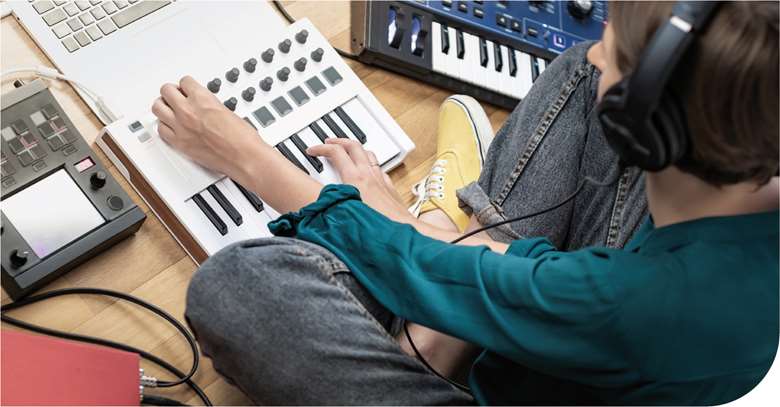Practical Technology Column: A Levels
Tim Hallas
Monday, February 1, 2021
A Levels are the most common Level 3 qualifications in English and Welsh schools. This month, Tim Hallas looks at what they can offer to Music Technology students.

AdobeStock/Photoboyko
As I continue my overview of the different qualifications that include some form of music technology, I'm going to cover the ones with which I am most familiar: A Levels.
Music Technology A Level
This is a pretty easy article for me to write because, if you weren't aware from reading this column, I am an A Level Music Technology specialist. It is now all I teach, and I consider myself very lucky to be in this position.
Music Technology A Level has been around since the ‘90s and has evolved significantly in that time. The course is only offered by Pearson/Edexcel and is a Level 3 qualification (as all A Levels are). It is a linear qualification, and it is assessed with two pieces of coursework and two exams.
Interestingly, the qualification involves very little music and is largely focused on the technology side of production. The qualification addresses recording and production in several of the components but combines this with synthesis and sampling techniques.
There is the opportunity for students to flex their compositional muscles in one of the components, but again, this is largely technology focused and there are no marks available for a beautifully written sonata unless you play it on a synth and run it through a backwards reverb (ok, this might be a bit of an exaggeration!).
The qualification is very rigorous and is not, as some people might think, a ‘soft’ option. It covers a wide range of skills and includes some complex scientific concepts. I am even considering making a Level 2 science qualification a pre-requisite for the course.
A Level Music Technology, sadly, is not as widely offered as it used to be. I think this is a real shame – it complements other subjects so well. It pairs well with Maths and Physics for the students who really want to understand audio and technology. But it pairs equally well with Music and other performance subjects, such as Theatre Studies, to develop skills for work in live events, for example. Or, the business side of music events and artist management.
As mentioned above, Music Technology contains very little music making (one of the reasons it complements music so well), so what about schools that do not have the numbers to run music tech but still have students who want to use technology?
Music A Level
The A Level in music is offered by all the major examination boards and most of them allow technology to be used in the key assessment components. All but one of the boards allow for technology to be used as a performance instrument (although some indicate that DJing isn't allowed at A Level, sadly).
However, the composition element is really where technology comes into its own in Music A Level. Most students will be using some form of score writing software to complete their compositions, and those who want to compose in a more contemporary style can access DAWs for this purpose.
Boards that expect students to complete harmony exercises, such as Bach chorales, also seem to offer a technology option as an alternative. Technology can be embedded throughout the course and doesn't have to rely on students having had countless years of instrumental playing. Technology broadens access to the course – which in my mind is a good thing.
The final section of A Level Music is the study of music repertoire. And fortunately, all the exam boards have included a broad range of music – including pieces that use technology and modern production techniques for their creation. So even if your school or college only runs one course, students interested in technology will still be exposed to some great examples of the power of technology in music.
Summary
Both A Level courses offer a technology route – and obviously in Music Technology it's the core part of the course. For students who really want to understand music production, Music Technology offers the perfect pathway. But for students who want to understand the complete history of music and perform, while using technology as part of that, Music is ideal. Even better would be both – but then I am biased!

